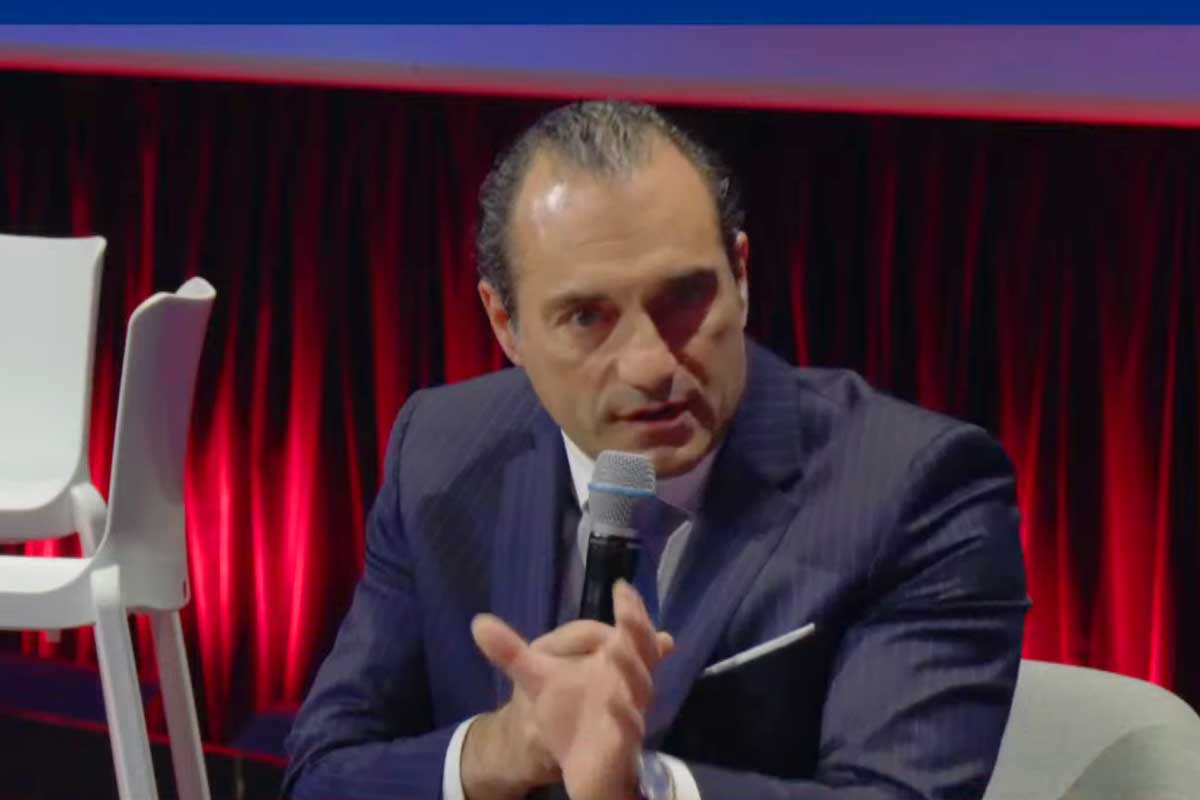
In Paris, at the Journée de la Filière on November 4, 2025 at the Cité des Sciences, Antonio Filosa didn't beat about the bush. With one slamming phrase: "the rules set by Brussels are not imperfect, they're bad", the new boss of Stellantis targeted what he sees as the blind spot in European strategy: regulation that imposes a single path (the 100 % electric) without taking account of market realities or purchasing power.
"Three no's, no yes's
On stage, as on television the day before, Antonio Filosa made a simple observation: Europe is the only major automotive region not to have recovered its pre-Covid volumes. The reason, he argued, was a profound mismatch between rules and demand. "What customers want, what they need and what they can afford": the EU would say no to all three. Conversely, in the United States, giving consumers back their freedom of choice would have boosted the market and secured massive investment.
Brussels in the crosshairs
For Antonio Filosa, Europe has "imposed the end of technologies" in which the industry knew how to excel (efficient combustion, hybridization), in favor of a single model, electric, where Chinese automakers have an ecosystem lead: raw materials, batteries, power electronics, right through to assembly. The result: a competitive disadvantage and an acceleration in imports.
Before 2035, correct 2026 and 2030
The CEO does not want a debate on 2035. He is calling for immediate corrections to the 2026 and 2030 levels:
- Light commercial vehicles: "very, very, very bad" trajectory. Current targets make the total cost of ownership too high for craftsmen and small businesses, who then keep their old, more polluting vans. Targets and timetable need to be reviewed.
- Passenger cars: focus on small electric cars (targeted incentives, super-credits) rather than pushing heavier, more expensive segments.
Technology neutrality and fleet renewal
The central theme, repeated with insistence: technological neutrality. In other words, allow several low-carbon solutions to coexist (hybrids, range extenders, low-carbon fuels, etc.) rather than imposing technological exclusivity. Filosa also calls for an accelerated renewal plan for Europe's aging fleet: over 150 million cars are over 12 years old. Replacing these vehicles with recent models, whatever their architecture, would immediately reduce actual emissions.
"The problem isn't China, it's Europe".
Where other executives point the finger at Beijing, Filosa qualifies: Chinese competition is real, but the mistake would be to respond with a single additional constraint. The priority, he says, is to adapt the rules to give European industry time to rebuild a complete ecosystem, from refining to battery cells, without losing further market share.
What the automotive industry is asking for in concrete terms
- Make 2026 and 2030 more flexible, especially for commercial vehicles.
- Technological neutrality in 2035 rather than 100 % strict electric.
- Regulatory advantages for small electric vehicles (bonuses, super-credits).
- Fleet renewal through targeted and effective mechanisms.
- Debate on local content to reconstitute an industrial base, without undermining competitiveness.
Beyond the measures, Filosa repositioned the debate on three realities: acceptability to households, competitiveness in the face of integrated Asian ecosystems, and the pace of transformation that the industry can absorb without social disruption. If Brussels opens the door to rapid adjustments, he promises more investment in Europe. Otherwise, capital will go where demand and standards converge.

He's absolutely right. The Chinese car manufactures won't kill the European car industry, European regulations will.
Markets are not at all ripe for electric cars. We can't force people to buy what they don't want, for reasons of cost, limited range and practicality (inadequate charger infrastructure).
We need to review the rules and dates, otherwise European brands will be condemned. Do we want to offer the market to the Chinese with their cheap and apparently not so bad cars?
How are you preparing for the future Stanislas?
Daily journeys rarely exceed 100 km, and their cost per km is divided by 3 thanks to EVs.
The day it becomes obvious to switch to EVs, 2030 or 2035, we may have to choose between Chinese... Or Chinese!?
We've recreated the SHEIN syndrome in the automotive industry.
After that, it will be too late to turn back the clock.
You've got to get out of your house 🙂. EVs are widely appreciated and for at least 50% of motorists perfectly usable on a daily basis without any constraints. We're 19% away. It's 100% that's impossible at the moment, yes. No reason to reject such pleasant vehicles!
Se le auto elettriche sono così piacevoli e tutti le vogliono perché imporle per legge?
Because oil is cheap.
It's cheaper and more comfortable to pollute than to be virtuous.
Estos chavales que están mandado ahora en Europa no tienen ni idea de nada , la gente no tiene con los sueldos de España para cambiar de coche así como así, yo como minimo necesito conservar mi coche al menos 20 años, no lo cambio antes, no soy millonario y no puedo tirar mi coche etiqueta B con 35.000km que tiene porque ellos quieran, cuando se rompa allá por el 2040 pues ya lo pensaré, no me compro un coche chino ni harto de vino, no me gasto 40.000€ en un coche con el carter de plástico 3 cilindros y 1000cc